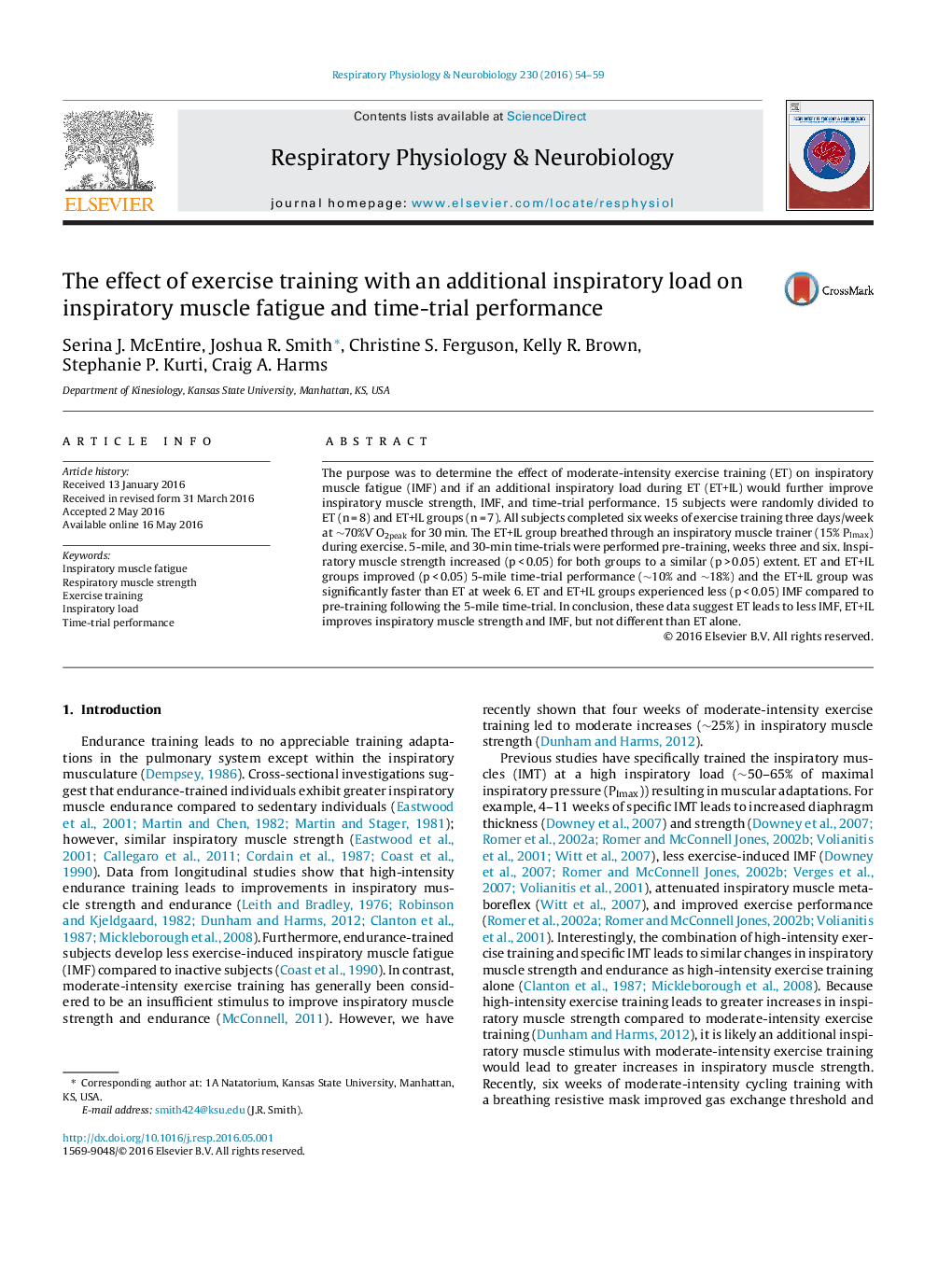| Article ID | Journal | Published Year | Pages | File Type |
|---|---|---|---|---|
| 2846652 | Respiratory Physiology & Neurobiology | 2016 | 6 Pages |
•Endurance training (ET) led to less exercise-induced inspiratory muscle fatigue.•ET with inspiratory muscle training (IMT) increased inspiratory muscle strength.•ET with IMT led to decreases in exercise-induced inspiratory muscle fatigue.
The purpose was to determine the effect of moderate-intensity exercise training (ET) on inspiratory muscle fatigue (IMF) and if an additional inspiratory load during ET (ET+IL) would further improve inspiratory muscle strength, IMF, and time-trial performance. 15 subjects were randomly divided to ET (n = 8) and ET+IL groups (n = 7). All subjects completed six weeks of exercise training three days/week at ∼70%V̇O2peak for 30 min. The ET+IL group breathed through an inspiratory muscle trainer (15% PImax) during exercise. 5-mile, and 30-min time-trials were performed pre-training, weeks three and six. Inspiratory muscle strength increased (p < 0.05) for both groups to a similar (p > 0.05) extent. ET and ET+IL groups improved (p < 0.05) 5-mile time-trial performance (∼10% and ∼18%) and the ET+IL group was significantly faster than ET at week 6. ET and ET+IL groups experienced less (p < 0.05) IMF compared to pre-training following the 5-mile time-trial. In conclusion, these data suggest ET leads to less IMF, ET+IL improves inspiratory muscle strength and IMF, but not different than ET alone.
